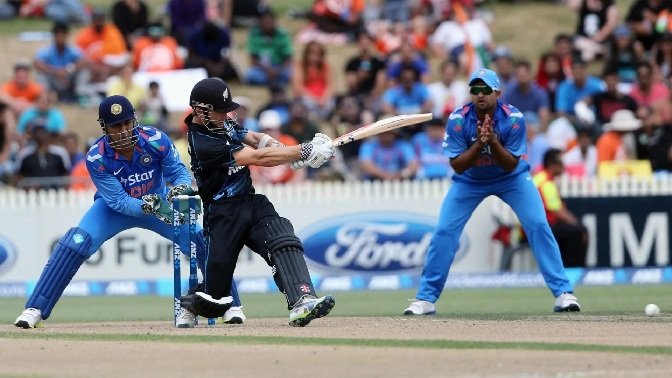
Anne Hathaway
Table of Contents
ToggleIntroduction
Anne Hathaway is an accomplished actress with a career that spans over two decades. From her charming performances in family-friendly films like The Princess Diaries to her Oscar-winning role in Les Misérables, Hathaway has become a familiar face in Hollywood. Yet, despite her success, a peculiar phenomenon has emerged: a notable segment of the public harbours a strong dislike for her. This raises the question—why do people hate Anne Hathaway?
The Rise of Anne Hathaway
Early Career Successes
Anne Hathaway’s career began with a bang. She was quickly embraced by audiences after her breakout role as Mia Thermopolis in The Princess Diaries (2001). This role showcased her ability to play relatable and endearing characters, making her a household name almost overnight.
Breakout Roles that Made Her a Household Name
Following her success in The Princess Diaries, Hathaway took on a variety of roles that demonstrated her range as an actress. She starred in the critically acclaimed film Brokeback Mountain (2005) and captured hearts as the ambitious assistant in The Devil Wears Prada (2006). These performances solidified her status as one of Hollywood’s most promising young talents.
Positive Reception and Critical Acclaim
For much of her early career, Hathaway was celebrated not only for her talent but also for her professionalism and grace. She received numerous awards and nominations, which helped to bolster her reputation as a versatile and dedicated actress.
The Turning Point: Why the Backlash?
Analysis of the Shift in Public Perception
Despite her early successes, there was a noticeable shift in public sentiment towards Hathaway in the early 2010s. What had once been admiration began to turn into criticism, and for some, outright disdain.
The “Oscar Effect” and Its Impact
One of the significant turning points in public perception occurred around the time Hathaway won the Academy Award for Best Supporting Actress for her role in Les Misérables (2012). While her performance was widely praised, her emotional acceptance speech and subsequent media appearances were criticized as overly rehearsed and insincere. This moment marked the beginning of what would come to be known as the “Hathahate” phenomenon.
Overexposure in the Media
Another factor contributing to the backlash was Hathaway’s ubiquity in the media during this period. Her frequent appearances at award shows, interviews, and red-carpet events led to a sense of overexposure. For some, it felt as though Hathaway was everywhere, and this constant visibility may have contributed to the growing annoyance.
The “Hathahate” Phenomenon
Definition and Origins of the Term “Hathahate”
The term “Hathahate” was coined to describe the inexplicable wave of negativity directed towards Anne Hathaway. This phenomenon was largely driven by social media, where users would share memes, tweets, and posts expressing their dislike for the actress. But where did this hate come from, and why did it gain so much traction?
How Social Media Amplified the Dislike
Social media played a pivotal role in amplifying the “Hathahate” sentiment. Platforms like Twitter and Facebook allow users to quickly and easily share their opinions, creating an echo chamber of negativity. As more people joined in, the hate grew, often with little regard for the validity of the criticisms being made.
The Role of Internet Culture in Spreading Negativity
Internet culture, with its tendency to latch onto trends and memes, helped to fuel the “Hathahate” movement. What might have started as a few isolated opinions quickly snowballed into a widespread phenomenon, as users jumped on the bandwagon without fully understanding the reasons behind the hate?
Personality Perception
Criticisms of Anne Hathaway’s Public Persona
A significant portion of the dislike towards Hathaway stems from perceptions of her personality. Some critics argue that she comes across as overly polished and insincere in her public appearances. Her enthusiasm and seemingly “perfect” demeanour have been interpreted by some as inauthentic, leading to accusations that she is “trying too hard” to be liked.
Perceived Authenticity vs. Perceived Phoniness
In the public eye, authenticity is often valued above all else. Hathaway’s highly polished image, combined with her emotional Oscar acceptance speech, led some to view her as phoney or disingenuous. This perception of inauthenticity has been a major factor in the backlash she has faced.
Public Figures and the Burden of Likability
For public figures, especially women, likability can be both a blessing and a curse. Hathaway’s case highlights the intense scrutiny female celebrities face when it comes to their public personas. The expectation of being both talented and endlessly likeable is a burden that can be difficult to bear.
The Role of Gender in Criticism
How Female Celebrities Are Scrutinized Differently
The scrutiny Hathaway has faced is not unique; it is part of a broader pattern of how female celebrities are treated in the public eye. Women in Hollywood are often held to higher standards than their male counterparts and are more likely to be criticized for their behaviour, appearance, and personality.
The Double Standards Women Face in Hollywood
Hathaway’s experience highlights the double standards that exist in Hollywood. While male actors are often celebrated for their confidence and ambition, women who display similar traits are frequently labelled as arrogant or unlikeable. This double standard is a significant factor in the backlash Hathaway has experienced.
Examples of Other Female Stars Who Have Faced Similar Backlash
Hathaway is not alone in facing public backlash. Other female stars, such as Gwyneth Paltrow and Jennifer Lawrence, have also been subjected to intense scrutiny and criticism. These cases underscore the challenges women face in maintaining a positive public image in an industry that often seeks to tear them down.
Anne Hathaway’s Response
How Anne Has Addressed the Criticism
Anne Hathaway has not shied away from addressing the criticism directed at her. In interviews, she has spoken openly about the “Hathahate” phenomenon and the impact it has had on her. Rather than retreating from the public eye, Hathaway has confronted the issue head-on, seeking to understand and learn from the backlash.
Her Public Statements and Interviews
In various public statements and interviews, Hathaway has expressed her desire to be more authentic and relatable. She has acknowledged that some of the criticism may have been warranted and has made efforts to adjust her public persona accordingly.
The Evolution of Her Public Image
Over time, Hathaway’s public image has evolved. While the “Hathahate” phenomenon has left a mark, she has managed to reclaim some of the positive public sentiment through her continued work and by being more mindful of how she presents herself in the media.
The Influence of Media and Pop Culture
Media Portrayal of Anne Hathaway Over the Years
The media has played a significant role in shaping public opinion about Anne Hathaway. Over the years, she has been portrayed in various lights—from the fresh-faced young actress to the overly eager award winner. The media’s portrayal has undoubtedly influenced how the public perceives her.
The Role of Pop Culture in Shaping Public Opinion
Pop culture, through movies, TV shows, and even late-night talk shows, has contributed to the narrative surrounding Hathaway. References to her in pop culture have often mirrored the public’s shifting opinion, sometimes reinforcing negative perceptions and other times challenging them.
Examples from TV, Movies, and Magazines
There have been numerous instances where Hathaway has been referenced in pop culture, often in a critical or mocking tone. These references have served to perpetuate the “Hathahate” phenomenon, making it even more challenging for her to shake the negative public perception.
The Power of Social Media
How Social Media Can Both Build and Destroy a Celebrity’s Image
Social media is a double-edged sword for celebrities like Anne Hathaway. While it can be a powerful tool for building a fan base and promoting work, it can also be a platform for spreading negativity. In Hathaway’s case, social media played a crucial role in the spread of “Hathahate.”
The Role of Twitter, Facebook, and Instagram in the “Hathahate” Trend
Platforms like Twitter, Facebook, and Instagram were instrumental in amplifying the dislike towards Hathaway. Hashtags, memes, and viral posts all contributed to the rapid spread of negative sentiment, making it difficult for Hathaway to counter the narrative.
Online Communities and Echo Chambers
Online communities, where like-minded individuals gather, can become echo chambers that reinforce negative opinions. In the case of “Hathahate,” these communities played a significant role in perpetuating the dislike, as users validated each other’s negative views and further entrenched the phenomenon.
Comparison with Other Celebrities
Celebrities Who Have Faced Similar Public Backlash
Hathaway’s experience is not unique; many other celebrities have faced similar public backlash. Stars like Kristen Stewart, who faced intense criticism during her rise to fame, and Taylor Swift, who has been both celebrated and criticized throughout her career, have also dealt with public scrutiny and negativity.
How Anne Hathaway’s Experience Compares to Theirs
While every celebrity’s experience is unique, Hathaway’s situation shares commonalities with those of other stars who have faced public backlash. Like many of them, Hathaway’s response has involved a combination of introspection, public engagement, and a gradual shift in public perception.
Lessons Learned from Other Stars Who Bounced Back
The experiences of other celebrities who have faced and overcome public backlash offer valuable lessons for Hathaway. Many of these stars have managed to rebuild their public image by staying true to themselves, continuing to deliver strong performances, and using their platform to address the criticisms head-on.
The Complexity of Fame
The Challenges of Being in the Public Eye
Fame comes with a unique set of challenges. For celebrities like Anne Hathaway, the constant scrutiny can be overwhelming. Every word, gesture, and decision is analyzed by the public, making it difficult to maintain a positive image.
The Psychological Toll of Constant Scrutiny
The psychological toll of constant scrutiny is another aspect of fame that often goes unrecognized. Celebrities are human, and the pressure to constantly perform and meet public expectations can lead to stress, anxiety, and other mental health challenges.
How Fame Affects Personal and Professional Life
Fame not only affects a celebrity’s public life but also their personal and professional lives. The demands of being in the spotlight can strain relationships, influence career choices, and impact overall well-being.
Public Opinion: Then vs. Now
Has Public Sentiment Shifted Over Time?
Public sentiment towards Anne Hathaway has shifted over time. While the “Hathahate” phenomenon was once widespread, there has been a gradual softening of opinions in recent years, particularly as Hathaway has taken on more varied and challenging roles.
The Impact of Anne Hathaway’s Recent Roles and Projects
Hathaway’s recent roles and projects have helped to shift public perception. By taking on a diverse array of characters and showing her versatility as an actress, she has reminded audiences of her talent and dedication to her craft.
Current Perceptions of Her in Hollywood and Among Fans
Today, Hathaway is generally well-regarded in Hollywood and among her fans. While some of the negativity from the “Hathahate” era lingers, it is clear that public perception has become more balanced and appreciative of her contributions to the film industry.
Is the Hate Justified?
Examining the Validity of the Criticisms
When examining the validity of the criticisms directed at Anne Hathaway, it becomes clear that much of the hate was fueled by subjective perceptions rather than objective faults. While no one is immune to criticism, it is important to distinguish between constructive feedback and baseless negativity.
Differentiating Between Constructive Criticism and Baseless Hate
Constructive criticism can be valuable, but it must be delivered thoughtfully and with the intent to help the person improve. In Hathaway’s case, much of the hate seemed to stem from a place of personal bias rather than constructive feedback, which is neither fair nor productive.
The Importance of Empathy in Judging Public Figures
Empathy is crucial when judging public figures. Celebrities are people too, and it is important to remember that they face challenges and struggles just like everyone else. By approaching criticism with empathy, we can foster a more supportive and understanding public discourse.
The Importance of Context
How Context Influences Public Perception
Context plays a significant role in how public figures are perceived. Hathaway’s situation highlights how different contexts—such as the timing of her Oscar win, the roles she took on, and the media narratives surrounding her—shaped public opinion.
Media Narratives vs. Reality
Media narratives often differ from reality, and it is important to recognize this when forming opinions about public figures. The media’s portrayal of Hathaway, while influential, does not necessarily reflect the full truth of who she is as a person or an actress.
Understanding the Bigger Picture
To fully understand why people hate Anne Hathaway, it is necessary to consider the bigger picture. This includes the cultural, societal, and personal factors that influence public opinion. By taking a holistic view, we can better appreciate the complexities of fame and the challenges that come with it.
Conclusion
Anne Hathaway’s journey through the highs and lows of public opinion is a testament to the complexities of fame. While the “Hathahate” phenomenon may have cast a shadow over her career for a time, Hathaway has shown resilience and adaptability in the face of criticism. Her experience underscores the importance of empathy, context, and a balanced perspective when it comes to judging public figures. As she continues to evolve as an actress and public figure, it is likely that the narrative surrounding her will continue to shift, reflecting the ongoing interplay between celebrity, media, and public perception.
FAQs
1. Why do people dislike Anne Hathaway despite her talent?
Many people’s dislike for Anne Hathaway stems from perceptions of her personality, particularly her public persona, which some view as inauthentic or overly polished. Additionally, the overexposure in the media during a peak period of her career contributed to the backlash.
2. How has Anne Hathaway responded to public criticism?
Anne Hathaway has addressed the criticism openly in interviews, expressing her understanding of the feedback and making efforts to be more authentic and relatable in her public appearances.
3. Is Anne Hathaway still popular today?
Yes, Anne Hathaway remains a popular and respected actress in Hollywood. While some negativity from the “Hathahate” era persists, public perception has generally become more favourable in recent years.
4. What roles have contributed to Anne Hathaway’s negative perception?
Hathaway’s role in Les Misérables and her subsequent Oscar acceptance speech are often cited as contributing factors to the negative perception, as some viewers found her emotional display to be overly dramatic.
5. Has public opinion about Anne Hathaway changed recently?
Public opinion about Anne Hathaway has softened in recent years, especially as she has continued to take on diverse and challenging roles that showcase her talent and versatility.
Read More: Scarlett Johansson’s Husband






